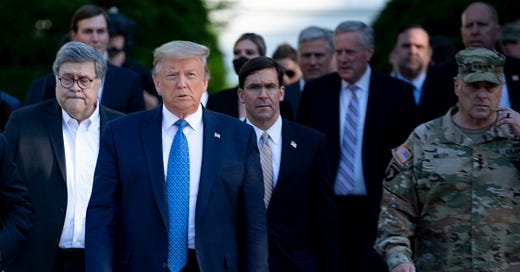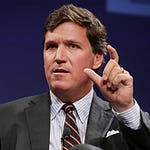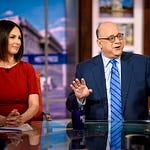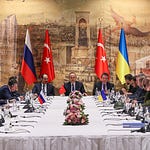
The relationship between the military and civilians, which was particularly turbulent under the Trump administration, has emerged as one of the chief challenges of the Biden presidency. At least 45 former and current military personnel participated in the January 6 attack on the Capitol building. In response, Lloyd Austin, Biden’s Secretary of Defense, ordered the military to review its anti-extremism policy.
The University of Maryland’s National Consortium for the Study of Terrorism and Responses to Terrorism (START), issued a report which notes that “[f]rom 1990 through the first six months of 2021, at least 354 individuals with U.S. military backgrounds committed criminal acts motivated by political, economic, social, or religious goals.” The report specifies further: “While extremists with U.S. military backgrounds represent a small portion (11.5%) of all cases in the data, there has recently been a significant uptick in such cases. From 1990-2010, an average of 6 subjects per year with U.S. military backgrounds were included in the data. Over the last decade, that number has more than tripled to nearly 21 subjects per year.”
The knowledge that there are extremist actors in the military is especially troubling when coupled with concerns about how Trump, as president, tried to turn the military into his private instrument. Recent revelations paint a dark picture of how top officers, including Chairman of the Joint Chiefs of Staff Gen. Mark Milley, attempted to limit Trump’s military power grab . I Alone Can Fix It, a new book by Carol Leonnig and Philip Rucker, gives a sense of Milley’s frustration. As CNN reports:
The authors explain Milley's growing concerns that personnel moves that put Trump acolytes in positions of power at the Pentagon after the November 2020 election, including the firing of Defense Secretary Mark Esper and the resignation of Attorney General William Barr, were the sign of something sinister to come.
Milley spoke to friends, lawmakers and colleagues about the threat of a coup, and the Joint Chiefs chairman felt he had to be “on guard” for what might come.
“They may try, but they're not going to f**king succeed,” Milley told his deputies, according to the authors. “You can't do this without the military. You can't do this without the CIA and the FBI. We're the guys with the guns.”
In the days leading up to January 6, Leonnig and Rucker write, Milley was worried about Trump's call to action. “Milley told his staff that he believed Trump was stoking unrest, possibly in hopes of an excuse to invoke the Insurrection Act and call out the military.”
There is reason to be skeptical of accounts that portray Milley as an heroic defender against Trump’s authoritarianism. As Michael Cohen points out ,if you look at the details it doesn’t appear Milley actually did anything. At key moments in the Trump administration – such as appearing in uniform for Trump’s photo op at the church in Lafayette Square – Milley was all too servile.
To better understand the problem of military extremism and Trump’s attempts to suborn the military, I spoke with Spencer Ackerman, author of the soon-to-be released Reign of Terror: How the 9/11 Era Destabilized America and Produced Trump. Spencer has been covering the military for more than two decades now and has great insights on these issues. Among the topics covered are the problems with a counter-terrorism approach to a political problem and why liberals are wrong to uncritically celebrate General Milley.
(Podcast produced by Julia Elinore Patterson; post edited by Emily M. Keeler)
Share and Subscribe
If you liked this episode, please share:
Or subscribe:














Share this post